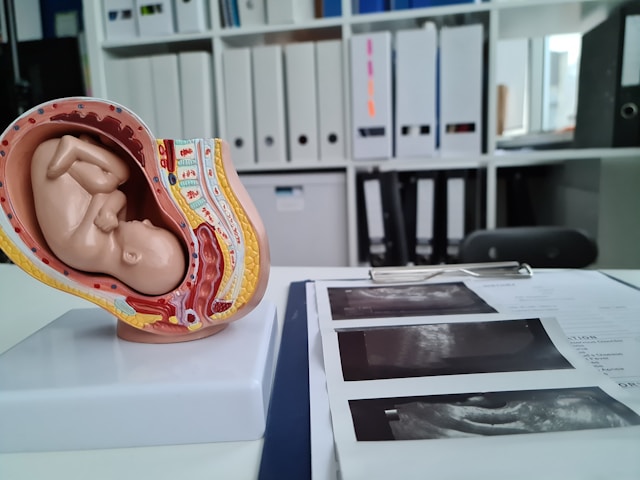Are surrogacy and IVF permitted in Islam?
Surrogacy in Islam
The issue of surrogacy has been considered by Islamic scholars. Within Shiʿa thought, some jurists view surrogacy as a form of assisted reproduction that can help couples struggling to conceive naturally. In contrast, the vast majority of Sunni scholars have ruled that surrogacy is entirely prohibited (haram) in Islam, and thus not permissible for married couples.
This prohibition is based on the principle that surrogacy resembles zinā (adultery), since the surrogate mother carries a child who is not conceived from her lawful husband. This introduces a third party into the most intimate of human relationships, which contradicts the principles of Islamic law regarding family and lineage. Allah says:
وَهُوَ ٱلَّذِى خَلَقَ مِنَ ٱلْمَآءِ بَشَرًۭا فَجَعَلَهُۥ نَسَبًۭا وَصِهْرًۭا ۗ وَكَانَ رَبُّكَ قَدِيرًۭا
“He it is who created man from water, then He made for him [bonds of] lineage and marriage. And your Lord is All-Powerful.” (25:54)
Preserving lineage (ḥifẓ al-nasl) is one of the key objectives of Islamic law (maqaṣid al-shariʿah). Surrogacy undermines this by blurring the maternal bond and creating doubt over who the true mother is.
The Fiqh Academy’s ruling
In 1407 AH / 1986 CE, the International Islamic Fiqh Academy addressed the issue of artificial insemination and related reproductive technologies. After reviewing research and consulting both medical specialists and jurists, the Council issued a resolution distinguishing between procedures that are permissible and those that are prohibited.
Prohibited methods
The Council declared five methods of artificial insemination impermissible due to the confusion of lineage (ikhtilaṭ al-ansab) they cause:
- Fertilisation between a husband’s sperm and an egg taken from a woman other than his wife, with the fertilised ovum implanted into his wife’s womb (egg donation).
- Fertilisation between a wife’s egg and sperm taken from a man other than her husband, with the fertilised ovum implanted into the wife’s womb (sperm donation).
- Fertilisation between the husband’s sperm and his wife’s egg, with the fertilised ovum implanted into a surrogate mother (surrogacy).
- Fertilisation between the sperm of a man and the egg of a woman who are not married to each other (donor sperm and donor egg), with the fertilised ovum implanted into the womb of the wife of the couple seeking children.
- Fertilisation between a husband’s sperm and his wife’s egg, but with the fertilised ovum implanted into the womb of another man’s wife (a variant of surrogacy).
Allah warns against mixing lineages:
ٱدْعُوهُمْ لِآبَآئِهِمْ هُوَ أَقْسَطُ عِندَ ٱللَّهِ
“Call them by [the names of] their fathers; that is more just in the sight of Allah.” (33:5)
This verse establishes the principle of clear lineage in Islam, which surrogacy threatens to confuse.
The ruling on surrogacy
From these rulings, it is clear that Islamic scholars are in agreement that surrogacy is impermissible in Islam, even if the sperm and egg are taken from lawful spouses. The central concern is the confusion of nasab (lineage). Introducing a surrogate mother creates ambiguity over who is the true mother of the child, and risks disputes over parentage and custody.
The Prophet ﷺ said:
«الْوَلَدُ لِلْفِرَاشِ وَلِلْعَاهِرِ الْحَجَرُ» (البخاري ومسلم)
“The child is attributed to the [lawful] bed, and for the adulterer is the stone.” (Bukhari and Muslim)
This hadith establishes that the child belongs to the mother who lawfully carried him in marriage, not to outsiders. Surrogacy undermines this rule by placing the child in the womb of a third party.
Allowing surrogacy would also create further social harms, such as disputes over who has the right to claim the child, or the risk of accidental inbreeding between children born through such arrangements.
IVF and permissible methods
It is important to note that Islam does not prohibit assisted reproductive technology outright. IVF is permitted under strict conditions: the sperm and egg must come from the married couple, and the embryo must be implanted only into the wife’s womb. Any involvement of a third party, whether through donor material or surrogacy, invalidates the procedure. In this way, the Sharīʿah balances compassion for couples experiencing infertility with the protection of lineage, family integrity, and social harmony.
The Fiqh Council permitted only two methods, provided strict safeguards are observed:
- Fertilisation between the husband’s sperm and his wife’s egg outside her body (in vitro), with the fertilised ovum implanted back into the wife’s womb.
- Direct mechanical insemination of the husband’s sperm into his wife’s womb, where fertilisation occurs naturally within her body.
These methods preserve lineage and do not involve third parties.
In summary
The Qur’an, Sunnah, and juristic consensus place great emphasis on protecting lineage and maintaining the sanctity of family ties. Surrogacy, by introducing a third party into procreation, undermines these principles. For this reason, the method is unanimously deemed impermissible in Sunni scholarship, while Shiʿa perspectives remain more contested but still under scrutiny.
Surrogacy may appear to be a solution for infertility, but in reality, it introduces harms that contradict the objectives of the Shariʿah. The true mercy and reminder for the believers is in the guidance of revelation, which preserves human dignity, family structure, and the clarity of lineage.
Shaykh Haytham Tamim 23rd Sept 2025
Related posts

